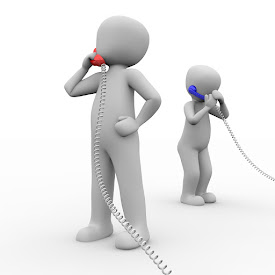Navigating Business Conference Etiquette with Confidence
Attending a business conference can be an exciting
opportunity to network, learn, and showcase your professional abilities. To
make the most out of these events and leave a positive impression, it's
important to familiarize yourself with business conference etiquette. In this
article, we will explore essential tips and guidelines to help you navigate
business conferences with confidence and professionalism.
Dress Appropriately:
One of the first impressions you
make at a business conference is through your appearance. Dress professionally
and in accordance with the conference dress code. It's better to be slightly
more formal than too casual, as it demonstrates respect for the event and the
professionals in attendance.
Be Punctual:
Arriving on time for conference
sessions and events is crucial. It allows you to maximize your participation
and demonstrates respect for the speakers and organizers. Plan your schedule
accordingly, considering factors such as travel time, registration, and any
pre-conference preparations you need to complete.
Engage in Active Listening:
During conference sessions and
presentations, practice active listening. Maintain eye contact with the
speakers, take notes to remember important points, and avoid distractions such
as checking your phone or engaging in side conversations. This shows respect
for the presenters and ensures you derive maximum value from the sessions.
Network Professionally:
Conferences provide excellent
opportunities to network with fellow professionals. Approach networking with a
positive and open mindset. Introduce yourself confidently, exchange business
cards, and engage in meaningful conversations. Remember to be respectful,
listen attentively, and show genuine interest in others' work or experiences.
Respect Personal Space:
When engaging in conversations or
networking, it's essential to respect personal space. Maintain an appropriate
distance, allowing others to feel comfortable. Avoid interrupting ongoing conversations
and wait for a suitable moment to introduce yourself or join a group
discussion.
Follow Social Media Etiquette:
Social media plays a significant
role in conferences today. If you choose to post about the conference on social
media, be mindful of what you share. Respect any guidelines or policies set by
the conference organizers. Additionally, use social media platforms to connect
and engage positively with other attendees, speakers, and organizers.
Participate Actively:
Conferences often include
interactive sessions, Q&A opportunities, or panel discussions. Take an
active part in these activities by asking relevant questions, sharing insights,
or participating in group discussions. Active participation demonstrates your engagement
and interest in the conference topics.
Show Appreciation:
After attending conference sessions
or receiving assistance from conference staff, show your appreciation. Take a
moment to thank the speakers, organizers, and any individuals who provided
valuable insights or support. A simple thank-you gesture goes a long way in
building positive professional relationships.
Follow up:
After the conference, consider
following up with the people you met. Connect with them on professional
networking platforms such as LinkedIn and send personalized messages to express
your appreciation for their time and insights. This helps solidify the
connections made during the conference.
By adhering to these business conference etiquette
guidelines, you can make the most of your conference experience. Dress
professionally, arrive on time, actively engage in sessions, network
respectfully, and express gratitude. Remember, conferences are not only about
learning and networking but also about leaving a lasting positive impression on
fellow professionals in your field.
Want to learn more about business etiquette? Check out our Udemy course
Master Business Etiquette & Social Skills Essentials






















